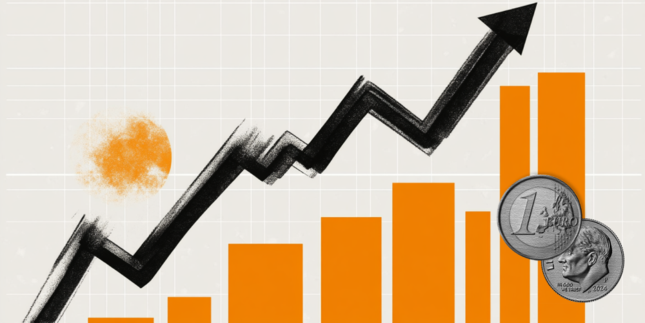The Reserve Bank of Australia (RBA) published the Minutes of its August monetary policy meeting on Tuesday, highlighting that the board members considered a case to raise rates but decided that a steady outcome would better balance the risks. The central bank further stated that the cash rate might have to stay steady for an "extended period."
Key takeaways
The Reserve Bank of Australia considered a case to raise rates but decided that a steady outcome better balanced the risks.
The RBA mentioned that the cash rate might have to stay steady for an "extended period."
The RBA members agreed it is unlikely that rates would be cut in the short term.
The RBA emphasized the need to be vigilant to upside risks to inflation, and that policy would need to remain restrictive.
The RBA noted that an immediate hike in rates could be justified if risks to inflation had increased "materially."
The RBA suggested that keeping rates steady for a longer period than implied by markets could help restrain inflation.
The RBA board stated that they would need to reassess this possibility at future meetings.
The RBA board judged that the risks had increased that inflation would not return to target in a reasonable time frame.
The RBA board indicated that they had limited tolerance for inflation remaining outside of the target band.
Market reaction to the RBA minutes
At the time of writing, the AUD/USD pair is trading near 0.6732, holding higher while adding 0.02% on the day.
RBA FAQs
The Reserve Bank of Australia (RBA) sets interest rates and manages monetary policy for Australia. Decisions are made by a board of governors at 11 meetings a year and ad hoc emergency meetings as required. The RBA’s primary mandate is to maintain price stability, which means an inflation rate of 2-3%, but also “..to contribute to the stability of the currency, full employment, and the economic prosperity and welfare of the Australian people.” Its main tool for achieving this is by raising or lowering interest rates. Relatively high interest rates will strengthen the Australian Dollar (AUD) and vice versa. Other RBA tools include quantitative easing and tightening.
While inflation had always traditionally been thought of as a negative factor for currencies since it lowers the value of money in general, the opposite has actually been the case in modern times with the relaxation of cross-border capital controls. Moderately higher inflation now tends to lead central banks to put up their interest rates, which in turn has the effect of attracting more capital inflows from global investors seeking a lucrative place to keep their money. This increases demand for the local currency, which in the case of Australia is the Aussie Dollar.
Macroeconomic data gauges the health of an economy and can have an impact on the value of its currency. Investors prefer to invest their capital in economies that are safe and growing rather than precarious and shrinking. Greater capital inflows increase the aggregate demand and value of the domestic currency. Classic indicators, such as GDP, Manufacturing and Services PMIs, employment, and consumer sentiment surveys can influence AUD. A strong economy may encourage the Reserve Bank of Australia to put up interest rates, also supporting AUD.
Quantitative Easing (QE) is a tool used in extreme situations when lowering interest rates is not enough to restore the flow of credit in the economy. QE is the process by which the Reserve Bank of Australia (RBA) prints Australian Dollars (AUD) for the purpose of buying assets – usually government or corporate bonds – from financial institutions, thereby providing them with much-needed liquidity. QE usually results in a weaker AUD.
Quantitative tightening (QT) is the reverse of QE. It is undertaken after QE when an economic recovery is underway and inflation starts rising. Whilst in QE the Reserve Bank of Australia (RBA) purchases government and corporate bonds from financial institutions to provide them with liquidity, in QT the RBA stops buying more assets, and stops reinvesting the principal maturing on the bonds it already holds. It would be positive (or bullish) for the Australian Dollar.
Information on these pages contains forward-looking statements that involve risks and uncertainties. Markets and instruments profiled on this page are for informational purposes only and should not in any way come across as a recommendation to buy or sell in these assets. You should do your own thorough research before making any investment decisions. FXStreet does not in any way guarantee that this information is free from mistakes, errors, or material misstatements. It also does not guarantee that this information is of a timely nature. Investing in Open Markets involves a great deal of risk, including the loss of all or a portion of your investment, as well as emotional distress. All risks, losses and costs associated with investing, including total loss of principal, are your responsibility. The views and opinions expressed in this article are those of the authors and do not necessarily reflect the official policy or position of FXStreet nor its advertisers. The author will not be held responsible for information that is found at the end of links posted on this page.
If not otherwise explicitly mentioned in the body of the article, at the time of writing, the author has no position in any stock mentioned in this article and no business relationship with any company mentioned. The author has not received compensation for writing this article, other than from FXStreet.
FXStreet and the author do not provide personalized recommendations. The author makes no representations as to the accuracy, completeness, or suitability of this information. FXStreet and the author will not be liable for any errors, omissions or any losses, injuries or damages arising from this information and its display or use. Errors and omissions excepted.
The author and FXStreet are not registered investment advisors and nothing in this article is intended to be investment advice.
Recommended content
Editors’ Picks

EUR/USD rises toward 1.1350 after finding support at near nine-day EMA
EUR/USD pauses its two-day decline, hovering near 1.1340 during Thursday’s Asian session. Daily chart technical analysis indicates a weakening bullish bias, as the pair has slipped below the ascending channel pattern.

GBP/USD: Bullish outlook remains in play above 1.3250
The GBP/USD pair drifts higher to around 1.3270, snapping the two-day losing streak during the early European trading hours on Thursday. Mitigating concerns over potential tariff threats by US President Donald Trump exerts some selling pressure on the US Dollar.

Gold price trims part of intraday gains, still well bid above $3,300 mark
Gold price regains positive traction as fading US-China trade optimism revives safe-haven demand. The US economic worries and Fed rate cut bets undermine the USD, also benefiting the commodity. A positive risk tone might hold back the XAU/USD bulls from placing aggressive bets and cap gains.

SEC Crypto Task Force plans to establish digital asset regulatory sandbox
The Securities & Exchange Commission's Crypto Task Force met with El Salvador's National Commission on Digital Assets representatives to discuss cross-border regulation and a proposed cross-border sandbox project.

Five fundamentals for the week: Traders confront the trade war, important surveys, key Fed speech Premium
Will the US strike a trade deal with Japan? That would be positive progress. However, recent developments are not that positive, and there's only one certainty: headlines will dominate markets. Fresh US economic data is also of interest.

The Best brokers to trade EUR/USD
SPONSORED Discover the top brokers for trading EUR/USD in 2025. Our list features brokers with competitive spreads, fast execution, and powerful platforms. Whether you're a beginner or an expert, find the right partner to navigate the dynamic Forex market.



